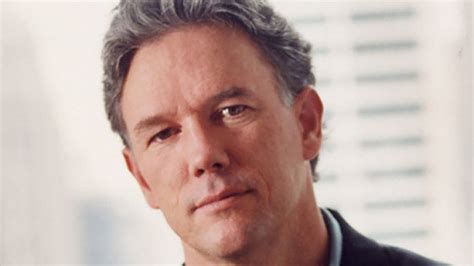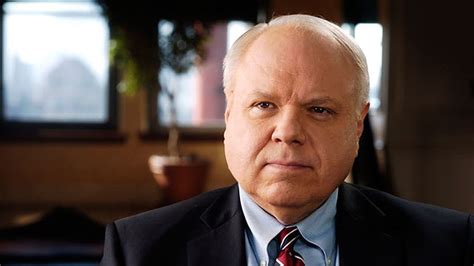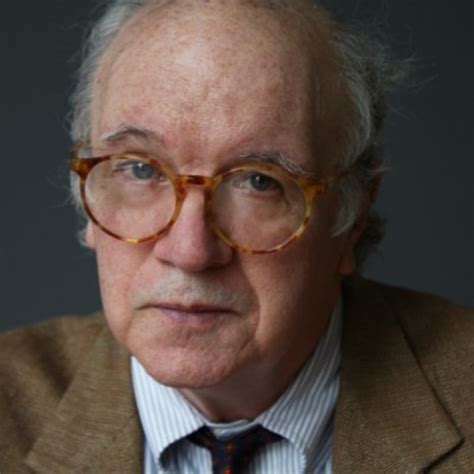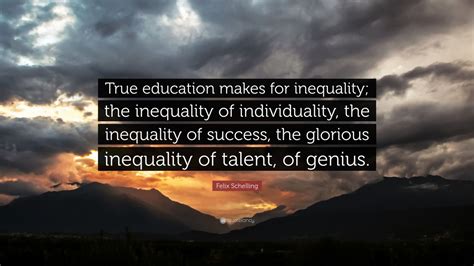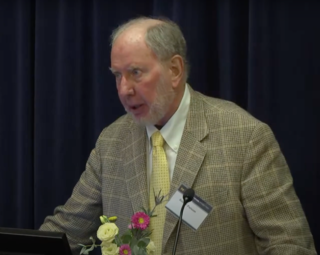Top 875 Inequality Quotes & Sayings
Explore popular Inequality quotes.
Last updated on April 14, 2025.
There are some people who say that they?re concerned only with poverty but not inequality. But I don?t think that is a sustainable thought. A lot of poverty is, in fact, inequality because of the connection between income and capability?having adequate resources to take part in the life of the community.
There have always been two theories about inequality. One is that it reflects just deserts. The other is that there are large elements of exploitation and inequality of opportunities. The evidence is overwhelmingly that the increase in inequality is associated with those negative factors. If it were all social contribution, then when the top did better, they would be contributing to everybody's well-being. That trickle-down hasn't happened. We've seen median income, people in the middle, actually worse off than they were 25 years ago.
The important issue is not how much inequality there is but how much opportunity there is for individuals to get out of the bottom classes and into the top. If there is enough movement upward, people will accept the efficiency of the markets. If you have opportunity, there is a great tolerance for inequality. That has been the saving grace of the American system.
There may be countries [where] there's no gender inequality in schooling, even in higher education, but [where there is] gender inequality in high business. Japan is a very good example of that. You might find cases in the United States where at one level women's equality has progressed tremendously. You don't have the kind of problem of higher women's mortality as you see in South Asia, North Africa, and East Asia, China, too, and yet for American women there are some fields in which equality hasn't yet come.
Egalitarians create the most dangerous inequality of all - inequality of power. Allowing politicians to determine what all other human beings will be allowed to earn is one of the most reckless gambles imaginable. Like the income tax, it may start off being applied only to the rich but it will inevitably reach us all.
We in America were worried about many problems dealing with economic inequality and political inequality. The Communist Party seemed to be the only political force, both concerned and willing, to take action to stop the threat of fascism abroad and to work for economic and political reform in this country.
Well, you can do whatever you want, but just don’t call it inequality. Put the word poverty there. Because we have many rich people on our board, and when they see the word poverty that makes them feel good, because [it means] they’re really nice people who care about the poor. When they see the word inequality it makes them upset, because [it means] you want to take money from them.
In the U.S. when people like me started writing things about inequality, the economic journals had no classification for inequality. I couldn't find where to submit my inequality papers because there was no such topic. There was welfare, there was health issues, there was trade obviously. Finance had hundreds of sub groups.
Most people believe that inequality is rising - and indeed it has been rising for a while in a number of rich countries. And there is lots of talk and realization of this. It's harder to understand that at the same time, you can actually have global inequality going down. Technically speaking, national inequality can increase in every single country and yet global inequality can go down. And why it is going down is because very large, populous, and relatively poor countries like India and China are growing quite fast.
Pornography is not egalitarian and gender-free. It is predicated upon the inequality of women and is the propaganda that makes that inequality sexy. For women to find passive, objectified men sexy in large enough numbers to make a pornography industry based upon such images viable, would require the reconstruction of women's sexuality into a ruling-class sexuality. In an egalitarian society objectification would not exist and therefore the particular buzz provided by pornography, the excitement of eroticised dominance for the ruling class, would be unimaginable.
Global inequality is such an abstract concept, simply because there is no global government. Telling people in rich countries who have had no increase in real incomes, stagnant median wages and so on, that on the other hand global inequality is going down because people who are much poorer than them are getting richer - it's something that maybe they would like in an abstract sense, because everyone is happy there are fewer poor Chinese, but you may not be as happy if these Chinese are taking your job.
I was at the World Bank and a commission reviewed our work on inequality for the U.S. Congress or somebody, and the head of the commission said to us: "You are spending taxpayer money to study issues like inequality? Which goes directly against capitalism and growth." That was the perception, that it should not be studied.
The great religious ages were notable for their indifference to human rights... not only for acquiescence in poverty, inequality, exploitation and oppression, but also for enthusiastic justifications for slavery, persecution, abandonment of small children, torture, and genocide... Moreover, religion enshrined hierarchy, authority, and inequality... It was the age of equality that brought about the disappearance of such religious appurtenances as the auto-da-fe and burning at the stake.
You'll also hear about the widening gap in the educated and the uneducated. The liberals will all say, "We must do something about it" and some in our population swoon, "Oh, yes, it's so unfair, and so unfortunate, and we've gotta do something about the inequality." So the Democrats then have their reason to do something about it, and the way they go about it is not trying to make people equal at all. The way they go about it is not even rooted in changing inequality, at the end of the day. The way they go about it is destructive for everybody.
The growing inequality of wealth and income distribution is both a moral and economic problem. If the wealthy are unwilling to pay more taxes, then this is going to lead to spending cuts. And if you put off the table things like national defense, then you're going to end up cutting more and more out of programs that aid the poor. So, I think there are consequences to this idea that tolerance for inequality requires us to - to just do nothing to make the wealthy contribute a higher share of resources to fund the government.
America has tolerated inequality because people think they can get ahead. If you have immobility on top of inequality, then people are not going to be happy campers. If you're stuck on the bottom and there just isn't much churning in society and you're stuck there through your adulthood, that's not a nice life to look forward to.
Remember, until the 1970s, the spread of democracy has always been accompanied by the decline of inequality. The more democratic our societies have been, the more equal they have been becoming. Now we have the reverse tendency. The spread of democracy now is very much accompanied by the increase in inequality.
Through much of its history, the US did not have high inequality as compared with Europe. Less so, in fact. That began to change in the industrial age, reaching a peak in 1928, after the forceful destruction of the labor movement and crushing of independent thought. Largely as a result of labor mobilization, inequality declined during the Great Depression, a tendency continuing through the great growth period of regulated capitalism in the early postwar decades.
I think, from a progressive point of view, to have a Democratic Congress and a Democratic White House, and to have spent the time on Obamacare, which had real benefits, 20 million insured, but not on inequality, was a major cost to the Democratic Party, costing them their majorities, but also a bit of a cost to the country, because it didn't address the fundamental issues that led to Donald Trump and that led to a lot of unhappiness, just the continued widening inequality.
Unequal Democracy is the sort of book to which every political scientist should aspire--it is methodologically rigorous, conceptually serious, and above all, it addresses urgent concerns of our fellow citizens. As Bartels shows, much of what we think we know about the politics of economic inequality is dead wrong. Bartels's perplexing and often unexpected discoveries should help refocus the gathering public debate about inequality and what to do about it.
we should reject the attempt to divert the national conversation away from soaring inequality toward the alleged moral failings of those Americans being left behind. Traditional values aren't as crucial as social conservatives would have you believe ? and, in any case, the social changes taking place in America's working class are overwhelmingly the consequence of sharply rising inequality, not its cause.
































